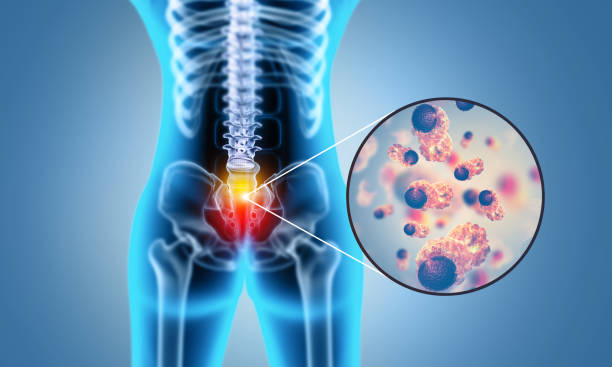Treatment for degenerative disk disease
Degenerative disk disease is a condition that is caused by the degeneration of the disks between vertebrae of your spine. The disks act as cushions and shock absorbers, therefore when they start to wear out and become damaged, they could cause discomfort and other signs. While there isn't any cure for degenerative disk disease, there are many treatments that are available to help you manage your symptoms as well as improve your quality of life. In this post, we will explore several of the most widely used treatment options in the treatment of degenerative disk disease, including surgical procedures, medication, and physical therapy. We will also look at the pros and cons of each treatment so that you are able to decide which method is best for you.
What is degenerative disk disease and what are the signs
Degenerative disk disease is a degenerative disorder which affects spine. It develops when the disks which cushion the spine weaken or become damaged. degenerative disk disease symptoms include leg pain, back pain, and weakness. The disks' degeneration could also cause the vertebrae's to compress, which can cause numbness as well as the sensation of tingling. degenerative disk disease is a progressive condition, meaning it gets worse as time passes. In its early stages degenerative disk disease can be managed with conservative treatments like physical therapy and pain medication. However, in its later states, degenerative disk disease may necessitate surgery to loosen the spine to relieve pain.
What are the reasons for degenerative disk disease
Degenerative disc disease may be caused by a variety of reasons, including age, injuries, and the degeneration and destruction of discs. Degenerative disk diseases are a common cause of back pain and is usually treated with non-surgical methods, such as exercises and pain medication. However, in some cases the need for surgery is required to relieve the pain and improve function. If you suspect you have degenerative disk disease, it is vital to consult with your doctor for a thorough diagnosis and treatment plan.
What is degenerative disk disease treated
Treatment for degenerative disks can vary depending on the severity of the degeneration. In the initial stages, degenerative disk disease often responds with conservative treatments, like ice and massage, gentle exercises physical therapy, and pain relievers. When degenerative disk disease progresses, it can require stronger drugs, or surgery. In the case of some patients with degenerative disk disease, a combination of therapies may be required to get relief. If you suspect you have degenerative disk disease, it's important to consult with your physician to determine a treatment plan that's right for you.
What are the possible complications from treatment of degenerative disk disease
Although there are numerous possible solutions for degenerative disk disease, there are also a variety of potential complications that can arise as a result of treatment. They could include infection caused by nerve damage or even paralysis. As such, it is essential to discuss all possible consequences and risks with a professional in the field prior to beginning any treatment plan. degenerative disk disease is a degenerative spine disorder that leads to the loss of the disks which cushion and break the vertebrae. The degeneration of disks can lead to pain, stiffness, and diminished mobility. While there are several possible ways to treat degenerative disk disease, there are also a variety of potential complications that could occur due to treatment. The potential complications include infection, nerve damage, and even paralysis. As such, it is imperative to discuss any potential hazards and benefits with your qualified healthcare provider before beginning any treatment plan. degenerative disk disease is a degenerative spinal condition which leads to the destruction of the disks that cushion and separate the vertebrae. Degeneration of the disks can cause
What can you do to prevent degenerative disk disease?
There are plenty of options to avoid degenerative disk disease, including keeping a healthy weight, exercising regularly, and not smoking. The health of your spine is also crucial. If you have degenerative disk disease, there are a number of treatments that can relieve your symptoms as well as prevent further damage to your disks. They include physical therapy, medications, and surgical procedures. If you think that you have degenerative disk disease, it's essential to consult your doctor so they can design a treatment program that's ideal for you.
Conclusion
If you are experiencing any of the symptoms associated with degenerative disk disease, it is important to see a doctor as soon as is. Therapies for degenerative disk disease can vary depending on the severity your situation, but typically comprises chiropractic care, medication, and physical therapy. There are some possible complications associated with treatment for degenerative disk disease, such as infection or spinal cord compression. However, the majority of people treated for the disease recover fully and live a long and satisfying health. There are other steps you can take to help keep degenerative disk disease from developing in the initial stage. Regular exercise and keeping an appropriate weight are two of the most effective ways to lower the chance of developing this condition. Should you be concerned, contact us. questions or concerns about degenerative disk.

